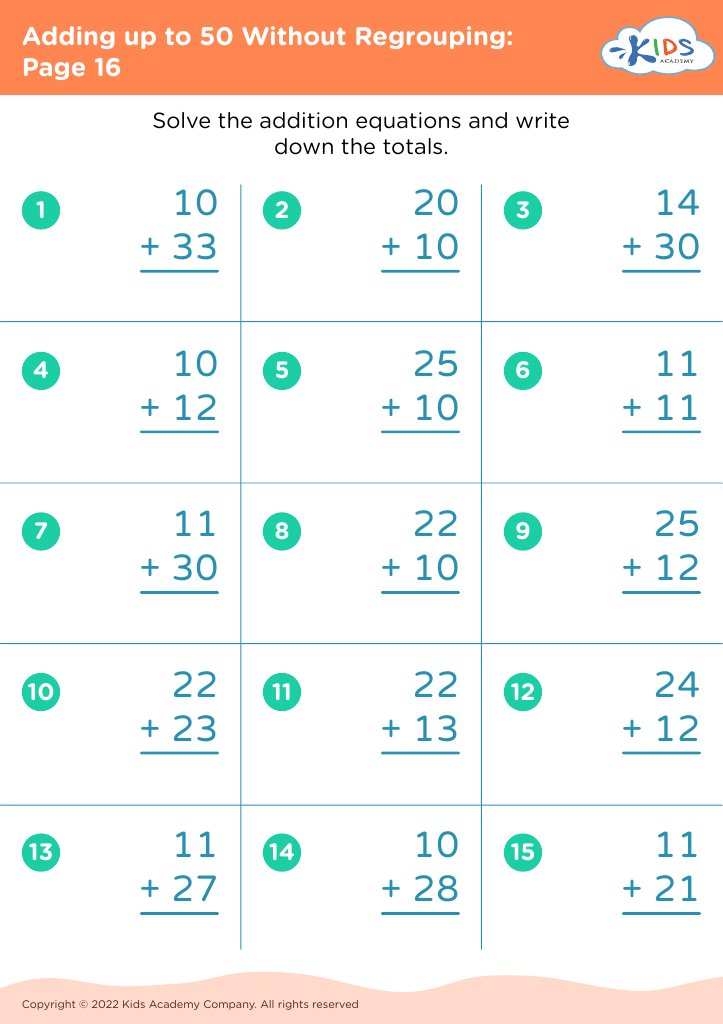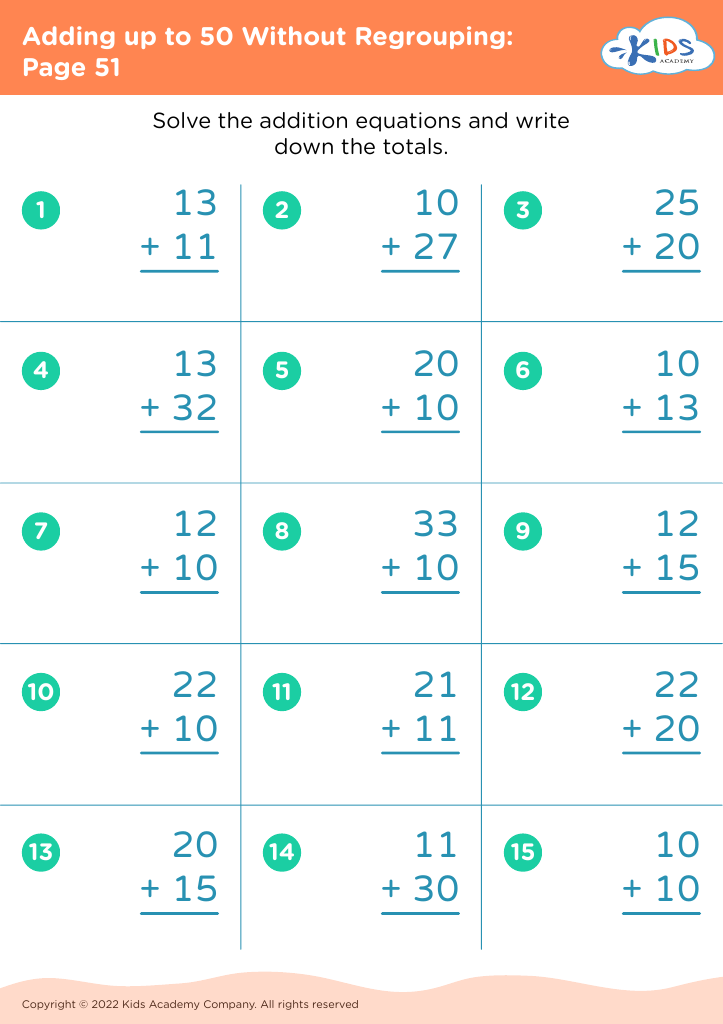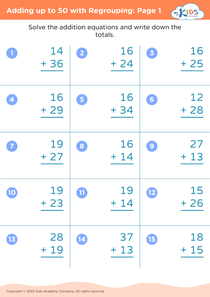Basic Math Skills Adding up to 50 Without Regrouping Worksheets for 7-Year-Olds
6 filtered results
-
From - To
Transform your child's math learning experience with our exciting Basic Math Skills Adding up to 50 Without Regrouping Worksheets, specially designed for 7-year-olds! These vibrant, engaging worksheets help kids master foundational addition up to 50 in a fun and easy way, fostering confidence and proficiency. Our top-quality resources ensure young learners grasp concepts without feeling overwhelmed by challenging regrouping. Perfect for class or home practice, our worksheets support academic growth and build essential skills. Boost your child’s math abilities and make learning enjoyable now! Visit Kids Academy to download these invaluable worksheets and watch your child flourish in math!
Basic math skills, like adding up to 50 without regrouping, are crucial for 7-year-olds as they lay the foundational groundwork for future mathematical learning and everyday problem-solving skills. Mastery of these skills fosters number sense and mental arithmetic capabilities, which are essential not just for advanced math topics but also for real-life activities like shopping, cooking, or even keeping track of time.
At this developmental stage, children’s brains are particularly receptive to learning patterns, sequences, and logic. Focusing on addition without regrouping helps solidify their understanding of numerical concepts, ensuring they are comfortable and confident in handling numbers. This confidence often translates into a positive attitude towards math, reducing anxiety related to the subject.
For parents and teachers, emphasizing these skills early ensures that learning progresses smoothly. Children who struggle with basic addition might face significant challenges as they move onto more complex operations such as subtraction with borrowing, multiplication, and division. Moreover, proficiency in these skills can bolster overall academic achievement, as mathematical literacy is tightly linked with problem-solving abilities in other disciplines, including science and technology.
Investing the time to nurture these foundational skills ensures children can build upon a solid mathematical base, ultimately equipping them with critical thinking and analytical skills for future success.




















